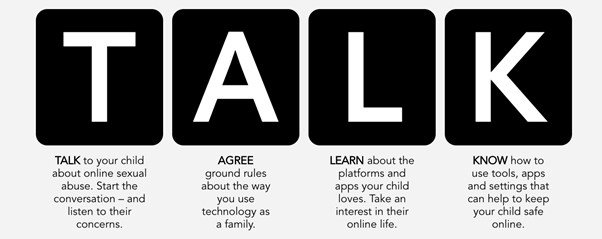At Wallingford School we are committed to ensuring that pupils are safe when using the internet at School and are keen to support parents/ carers in doing this at home. We ask parents/carers to be interested and supportive when monitoring their children’s use of the internet. This page has been designed to give you information that will support you in this role.
When online, children and young people can learn new things, get help with their homework, express themselves creatively and connect with friends and family. There are also risks, but by understanding and talking about the dangers you can help keep your child safe online. Remember, as they grow children are always using the newest apps and social media sites - it is unlikely that they will be using what you use. The information provided on this page will provide information and support to ensure that your child stays safe online this will also be reinforced regularly through tutor time, PSHE, assemblies and contact home.
Not sure where to start?
Key Rules for your Child
- Think before you send a picture or message about yourself or any other person. It doesn’t take long for it to be shared with every single person you know. What you think of as a joke might be really upsetting for the other person.
- Never give out personal information when it can be shared with others. You may trust your new friends but you don’t know his or her friends.
- Treat your password like your toothbrush – don’t share it with anyone!
- If you receive nasty messages, texts, comments etc, block the person sending them and always report it to an adult (your parent, teacher).
- Don’t reply to a bullying message but do keep it – whether it is a picture, message or online posting.
If Your Child is being Cyberbullied
- Make sure your child does not retaliate or reply to cyberbullying messages of any kind
- If you need to, you can help your child to change their contact details (email, online username, mobile phone number).
- Use the security tools on your family’s computer, on websites or on your child’s mobile phone.
- Save evidence of offending emails, text messages or online conversations.
- Report cyberbullying. You can report the incident to school, the website or service provider, and, in serious cases, the police.
Online Safety - Pinterest Update
https://www.internetmatters.org/hub/news-blogs/what-is-pinterest-what-parents-need-to-know/
Useful Files
Useful Links
Oxfordshire Safeguarding Board
National Safety Online - information about apps and games

